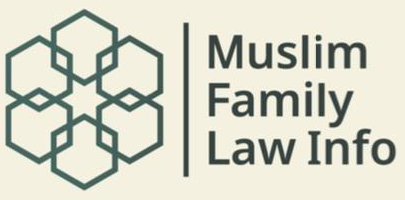Case Studies
We present a series of case studies based on the experiences of women who have contacted the MWNUK Helpline. These case studies offer real-life scenarios and highlight practical solutions to the complex issues faced by women, men and couples.
The names and scenarios have been altered to respect anonymity of individuals.
Forced Marriage and Divorce
Zahida’s Case
Keywords – forced marriage, student visa, no consent to nikah
Zahida, a 20-year-old working woman, was under intense pressure from her family to marry her cousin from Pakistan, who was in the UK on a student visa. To escape the coercion, Zahida temporarily moved into the empty home of a relative who was away. Despite leaving the family home, the pressure to agree to the marriage continued. Zahida was told not to worry and that she could “get a divorce later” if she was unhappy.
Eventually, Zahida felt unable to withstand the pressure and returned home, with the issue of marriage still unresolved. Soon after returning, she was asked to sign some papers and overheard something said in Urdu. Later, her father informed her that she had just been married in a Nikah ceremony. When Zahida refused to proceed with a civil marriage registration, her father responded with violence and physically assaulted her.
Under Islamic law, a Nikah is only valid with the informed and free consent of the bride. If Zahida did not understand that a Nikah ceremony was taking place, or if she was coerced into participating—whether through emotional pressure, misinformation, or physical force—the Nikah would not be valid. Consent under duress is not recognised as valid in Islamic legal principles.
Zahida’s experience reflects the importance of:
- Clear and informed consent for all parties in any Nikah.
- Protecting individuals from coercion, especially when immigration motives may be involved.
- Support systems for young women facing familial or cultural pressure around marriage, including access to safe spaces, legal advice, and religious guidance.
Her case underscores the need for greater awareness within communities that forced or deceptive marriage practices are not only unlawful under UK civil law, but also invalid under Islamic law.
Keywords – convert, forced divorce, family pressure
Serena is a convert to Islam. She met a Muslim man and the two decided they wanted to marry. However, the man’s family did not approve of Serena, partly because she was a convert and partly because he was their second son, and they believed it was inappropriate for him to marry before his older brother.
Despite intense family pressure to abandon the relationship, Serena and her husband went ahead with a nikah ceremony and began building their life together. They made efforts to maintain family ties, but her husband continued to face sustained pressure from his family to divorce her. Over time, the emotional strain began to take a serious toll on his health.
Marriage and divorce are deeply significant and life-altering decisions in both Islamic and state law. Under Islamic law, these decisions rest with the individuals involved. While it is encouraged to seek advice and take time for reflection, no one can be forced to marry or divorce against their will.
The only exception is in the case of a Faskh – a dissolution of marriage issued by a qualified Islamic scholar or Shariah council where the marriage is ended due to serious harm, abuse, or unreasonable behaviour by the husband, without needing his consent.
Serena and her husband’s experience highlights the importance of:
- Respecting the autonomy of couples in making decisions about marriage and divorce.
- Recognising the serious emotional and physical consequences of familial pressure.
- Understanding that religious principles do not ever permit forced divorce.

















